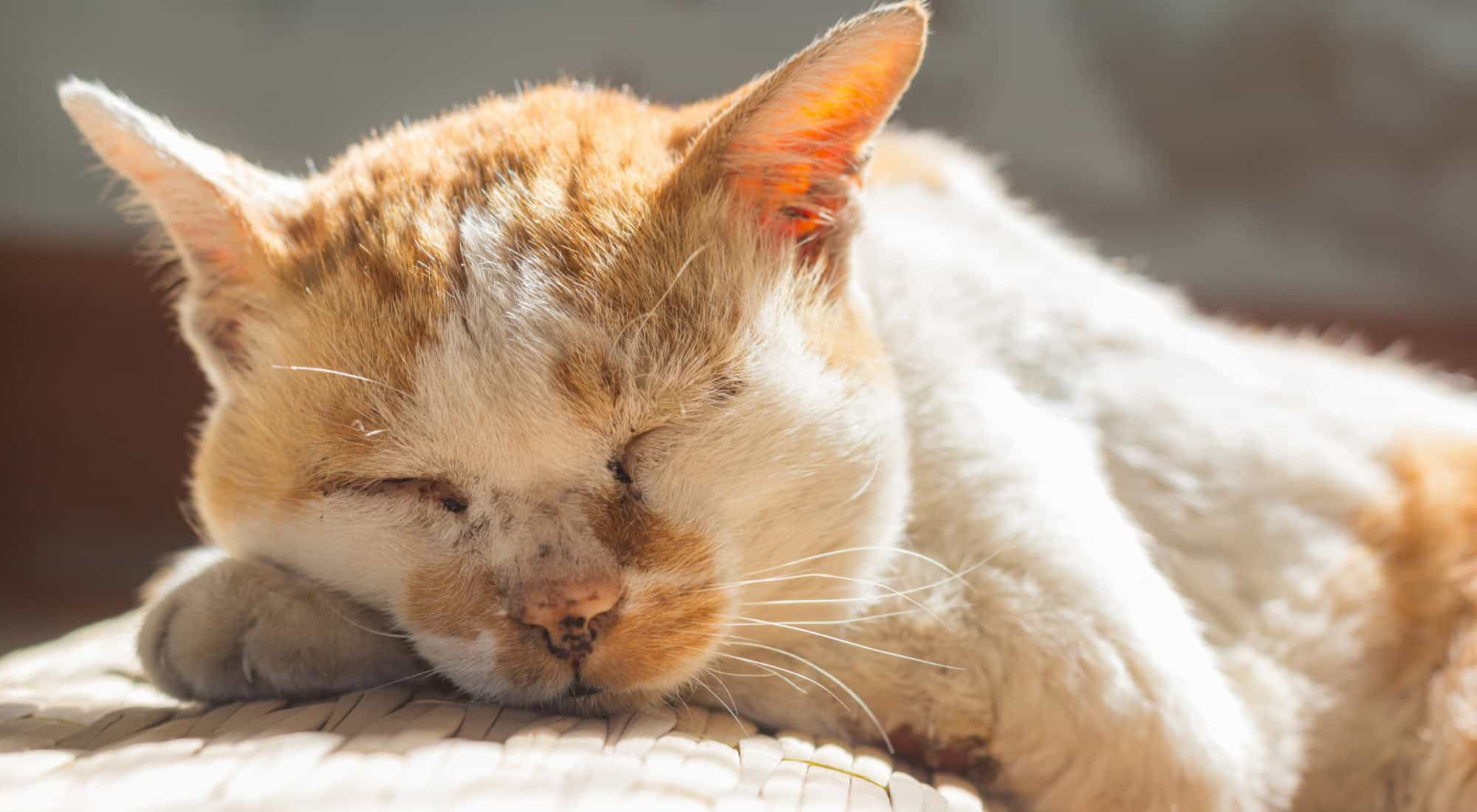What does a senior pet need during the later stages of their life?
Ask them and the answer will likely be “treats, please” or “more belly rubs and ear scratches.” And while these answers are certainly correct, they’re not quite complete. Which is why we asked a vet to give us the full picture when it comes to senior pet care.
Only the best for your bestie
When your furry BFF reaches his Golden Years (approximately nine and up for dogs and seven and up for cats) they’re likely to need a little extra care.
Visits to the vet (an old friend by now) should increase in order to stay ahead of any health issues that might pop up as your pet ages. “We should be doing senior pet exams, once, maybe twice, potentially more times a year,” says veterinarian Dr. Garrett Schuilenberg.
“And then definitely doing routine bloodwork and urine tests and things like that to try to monitor and identify any issue."
Dr. Schuilenberg advises parents of senior pets not to simply assume weight loss or a decrease in energy is because of aging. While they can be signs of getting older, these changes can also be indicators of illness or disease, and are often treatable with timely veterinary care.
Exercise remains an important element in the lives of senior dogs and cats. It helps to keep excess weight off, maintain muscle mass, and minimize the effects of arthritis.
If your pet’s mobility has decreased, however, small alterations to their surroundings can have a big impact on the ease with which they navigate your home. Think: laying down carpets or rugs to avoid skids and slides on hard surfaces, investing in ramps to help them climb up to their favourite snoozing spot, or elevating food and water bowls so they’re easier to access. For cat parents, consider a lower, senior-friendly cat tree.
How to prevent or spot aging issues
Have you ever seen a senior dog or cat curled up in their bed, snoring, while their dentures sit soaking in a glass next to them? Probably not. Because for pets, tooth loss shouldn’t be a thing—as long as they’re getting the right dental care.
“They shouldn't be losing teeth at all,” says Dr. Schuilenberg. “The reason they're losing teeth is because we haven't been doing proper dental care at home. This includes toothbrushing, dental treats, and dental food.” Avoidable oral changes, like plaque and tartar buildup, are what lead to more severe infections that can cause tooth loss and pain, he explains.
Large breed dogs are more susceptible to arthritis, and senior pets can be affected by kidney disease, and hyperthyroidism (especially for cats). Regular checkups are important to monitor your pet’s health.
“With a lot of these things people are like, ‘Oh, it's just happening with age.’ No, there's an underlying reason for this,” says Dr. Schuilenberg, who points out that cats are uniquely prone to disguising illness. “They hide illness so well because they're predator animals, [so] people take it for granted what's going on and we don't catch things until a lot later.”
What about deafness and blindness?
As a pet parent, it’s certainly stressful to realize that your beloved animal is beginning to lose hearing or sight as they age. And while Dr. Schuilenberg does recommend seeing your vet to determine if there’s an underlying cause for either ailment, he also says both conditions are highly manageable. “Overall, I think [pets] adapt better than we give them credit for.”
Once you’ve ruled out any underlying disease, he explains, managing their condition is “not going to be perfect. But they know the layout of your home, they know where your furniture is, they know where the back door is, and all these kinds of things. And they very rarely just go suddenly completely blind [or deaf]. They do honestly adapt pretty well.”













































